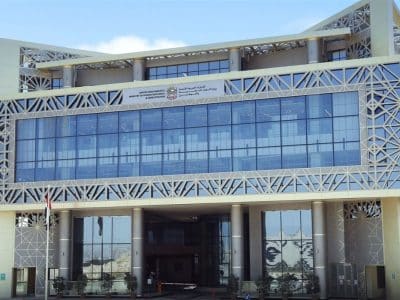Reducing wage pressures and a bigger pool of skilled candidates are improving employment conditions for companies in the UAE, according to a new report.
A report from Hays to accompany its latest Global Skills Index in association with Oxford Economics, said employment conditions for UAE organisations are “favourable”, due to a smaller gap between employees’ salary expectations and what companies are willing to pay, and a “ready supply of skilled candidates”.
The report, ‘Regional dynamics of the global labour market: skills in demand and tomorrow’s workforce’, is based on an analysis of employment markets across 33 global economies, assessing the dynamics at play in each local labour market.
For the UAE, the overall index score has reduced marginally from 4.8 in 2016 to 4.7 in 2017, suggesting easing pressures overall, the report said.
It cited high overall net migration – with the UAE having one of the highest rates in the world – and a growing working age population, counterbalancing the issue of an ageing population that many other countries across the world are facing.
Crucially, real wage growth is forecast to stand at 2.9 percent for the end of 2017, down from 3.6 percent in 2016. This is “good news for organisations based in the UAE”, the report said, as it means salary pressures on internal budgets are eased.
“What’s more, easing wage pressures in the Middle East means employers may find it slightly easier to attract and retain top talent relative to last year,” the report added.
Chris Greaves, managing director of Hays Gulf, said:“As a region, the UAE has always embraced skilled labour migration, with expats making up over 90 percent of the working population.
“Candidates are typically attracted here by the tax-free salaries but also as a region, the decline in energy sectors has forced increased diversification of the economy.
“This has opened up many attractive opportunities for candidates across all industry sectors.”
However, the report urged organisations not to become complacent. High employee turnover rates remain an issue for employers in the UAE, it said.
“An organisation is only as good as the people in it,” said Greaves. “While demand for roles remains strong from skilled candidates and salary increases slightly subdued year-on-year, high employee turnover does remain a challenge for UAE employers.”
He added: “To continue attracting top talent and instilling a sense of loyalty from it, businesses need to benchmark their offerings against that of the competition – both locally and globally.
“These favourable employment conditions offer an opportune time for organisations to boost their learning and development programmes to secure their talent pipeline for the future.”
The Hays Global Skills Index provides a score for each country analysed of between 0 and 10 to measure the pressures present in its labour market.
The score is calculated by analysing seven indicators, including education levels, labour market flexibility and wage pressures.








